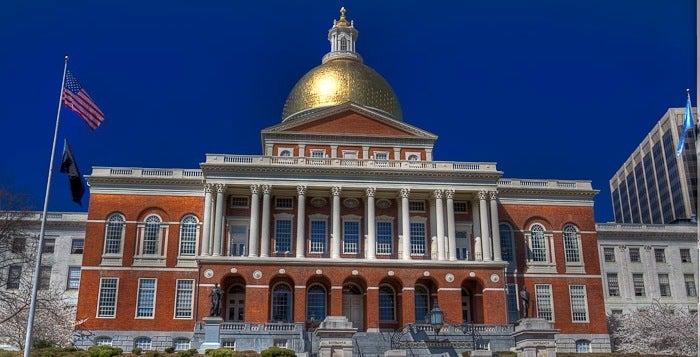Half of the workers who comprise the Massachusetts workforce hold at least a bachelor’s degree, the first time any state has surpassed the 50 percent threshold, and the wage gap between workers with degrees and those without continues to widen, according to a new report from the Massachusetts Budget and Policy Center.
Due for release Wednesday, the MassBudget report found that the median wage in 1979 for a Massachusetts worker with a bachelor’s degree was 49 percent higher than the median wage of a worker who did not attend college. As of 2016, the “college wage premium” had increased to 99 percent, according to the report. Nationally, the premium was 84 percent in 2015, MassBudget said.
The non-profit think tank said the median hourly wage for a Massachusetts worker with a high school degree is $15.12, citing data from the Economic Policy Institute, while the median hourly wage for a worker with a bachelor’s degree or higher is $30.11.
Since 1979, real wages for degree-holding workers have increased by about a third, but as of 2016 real wages for workers who have not attended college have held flat, MassBudget said.
“While it may seem obvious in 2017 that higher levels of college education would be associated with higher earnings at the state level, this relationship is actually a fairly recent feature of the U.S. economy,” MassBudget wrote in its report. “In 1979, the correlation between educational attainment of a state’s workforce and its median hourly wage was weak.”
That relatively new trend is especially evident in Massachusetts, MassBudget said, since the state saw a greater increase in the share of its labor force with at least a bachelor’s degree than any other state since 1979. In 1979, 20 percent of the Massachusetts workforce had a bachelor’s degree or higher and in 2016 that share had grown to 50.2 percent, MassBudget said.
“Arguably no state has benefitted from this ever-strengthening link between education and wages more than Massachusetts, where the share of workers with bachelor’s degrees has skyrocketed,” MassBudget said.
Massachusetts has also seen the second highest median hourly wage growth of any state since 1979, having climbed 32 percent to $21.22 while the national average has grown by 9 percent.
MassBudget, a liberal policy leaning organization, suggested that increased state support for community colleges, public four-year colleges and the University of Massachusetts system could make it easier for more Massachusetts workers to attain higher degrees.
“Expanding access to higher education can benefit both individual students and the overall state economy, as workers with a college degree earn more than those without,” the MassBudget report said. “But the cost of attending college has been increasing steadily, and more students are taking on ever-increasing debt to pay those costs.”
In December, MassBudget reported that Massachusetts had cut its higher education funding by an inflation-adjusted 14 percent since 2001, while both tuition and fees and student debt have increased.
As total state funding has declined, student enrollment has gone up, according to the report, leading to a 31 percent drop in per-student spending since 2001, as adjusted for inflation.

